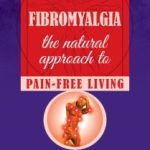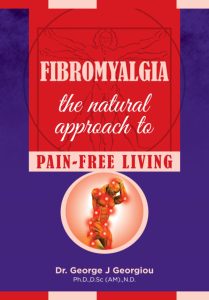Understanding Irritable Bowel Syndrome (IBS)
IBS is a functional gastrointestinal disorder, meaning there are no structural abnormalities or specific diagnostic markers to identify the condition. Instead, the diagnosis is based on symptoms that fit specific criteria outlined in clinical guidelines. The primary symptoms of IBS include:
- Abdominal pain or discomfort
- Bloating and distension
- Altered bowel habits (constipation, diarrhea, or alternating between the two)
- Relief of symptoms after bowel movement
It’s essential to rule out other gastrointestinal conditions with similar symptoms before diagnosing IBS. IBS is often classified into three subtypes based on predominant bowel habits: IBS with constipation (IBS-C), IBS with diarrhea (IBS-D), and mixed IBS (IBS-M).
Potential Causes of IBS
The exact cause of IBS remains unclear, and it likely involves a combination of factors. Some potential causes and triggers of IBS include:
- Gut-Brain Axis: The gut-brain axis plays a crucial role in IBS, where communication between the gut and the brain is disrupted, leading to abnormal gut motility and sensitivity.
- Microbiome Imbalance: An imbalance in the gut microbiome, the vast community of microbes in the intestines, has been linked to IBS symptoms.
- Food Sensitivities: Some individuals with IBS may have sensitivities to certain foods, such as lactose or gluten, which can trigger symptoms.
- Stress and Anxiety: Psychological factors, including stress and anxiety, can exacerbate IBS symptoms.
- Intestinal Inflammation: In some cases, low-grade inflammation in the intestines may contribute to IBS symptoms.
Naturopathic Approaches for Managing IBS
Naturopathic medicine is a holistic system of healthcare that emphasizes the body’s ability to heal itself and addresses the root causes of disease. Regarding IBS, naturopathic approaches promote gastrointestinal health, reduce inflammation, and address individual triggers. Some key strategies include:
- Dietary Modifications: Identifying and eliminating potential trigger foods, such as FODMAPs (fermentable oligosaccharides, disaccharides, monosaccharides, and polyols), can significantly improve IBS symptoms. Naturopaths often work with patients to create personalized dietary plans that support gastrointestinal health.
- Probiotics and Gut Microbiome Support: Probiotics are beneficial bacteria that can help restore a healthy balance in the gut microbiome. Naturopaths may recommend specific probiotic strains based on individual needs.
- Herbal Medicine: Certain herbal remedies, such as peppermint oil, chamomile, and aloe vera, have shown promising results in managing IBS symptoms and reducing inflammation.
- Stress Reduction Techniques: Naturopathic medicine strongly emphasizes the mind-body connection. Stress reduction techniques, such as mindfulness meditation, yoga, and deep breathing exercises, can help manage IBS symptoms.
- Nutritional Supplements: Naturopaths may recommend certain nutritional supplements, such as fiber, enzymes, and vitamins, to support gastrointestinal health and ease symptoms.
- Lifestyle Modifications: Lifestyle changes, including regular exercise, adequate sleep, and hydration, can positively impact gut health and overall well-being.
Case Studies and Testimonials
One of the significant advantages of naturopathic medicine is its focus on personalized care and individualized treatment plans. As such, naturopathic practitioners often have success stories and testimonials from patients who have experienced significant improvements in their IBS symptoms.
Case Study 1: Sarah’s Journey to Relief
Sarah, a 32-year-old woman, had been struggling with IBS-D for several years. Conventional treatments provided limited relief, and she was frustrated with the side effects of medications. Seeking an alternative approach, Sarah decided to consult with a naturopathic doctor.
Her naturopathic doctor conducted a thorough assessment, including a detailed medical history, dietary analysis, and laboratory tests. It was found that Sarah had several food sensitivities, including lactose and gluten. Her gut microbiome was imbalanced, and she had signs of mild intestinal inflammation.
Sarah’s naturopathic doctor recommended a personalized treatment plan based on her findings. Sarah eliminated trigger foods from her diet and incorporated gut-healing foods, such as bone broth and fermented foods. She also started taking specific probiotic strains to support her gut microbiome.
In addition to dietary changes, Sarah engaged in stress-reduction techniques, including yoga and meditation. Her naturopathic doctor also prescribed herbal supplements, such as peppermint oil capsules, to help alleviate her IBS symptoms.
Over several months, Sarah experienced a significant improvement in her IBS symptoms. Her abdominal pain reduced, and her bowel movements became more regular and less urgent. She reported feeling more in control of her condition and experienced a boost in her overall well-being.
Testimonial 1: “Naturopathic Medicine Gave Me My Life Back!”
“I had struggled with IBS for years and felt like I was always at the mercy of my symptoms. Conventional treatments didn’t offer me much relief, so I tried naturopathic medicine. Working with a naturopathic doctor completely changed my life. She took the time to understand my individual needs and created a personalized plan that addressed the root causes of my IBS. With dietary changes, probiotics, and stress reduction techniques, I finally found relief from my symptoms. I can’t thank my naturopathic doctor enough for giving me my life back!” – Sarah
Case Study 2: John’s Journey to IBS-C Relief
John, a 45-year-old man, had been dealing with IBS-C for many years. He experienced chronic constipation, bloating, and discomfort. He had tried various laxatives and over-the-counter remedies, but they only provided temporary relief.
Seeking a more natural and lasting solution, John consulted with a naturopathic doctor. Through comprehensive testing, it was discovered that John had a slow transit time in his gut, leading to constipation. He also had a history of stress and anxiety, contributing to his IBS symptoms.
John’s naturopathic doctor recommended combining dietary changes, herbal remedies, and lifestyle modifications. She suggested increasing John’s fiber intake through whole foods like fruits, vegetables, and flaxseeds. Additionally, she prescribed a blend of herbs known for their gentle laxative effects to support regular bowel movements.
John also started practicing stress reduction techniques, including meditation and deep breathing exercises, to manage his anxiety. With the support of his naturopathic doctor, he made gradual lifestyle changes to reduce stress and prioritize self-care.
Over time, John experienced improvements in his bowel movements. His constipation was reduced, and he reported feeling less bloated and uncomfortable. He no longer relied on harsh laxatives and felt more empowered to manage his IBS symptoms naturally.
Testimonial 2: “Naturopathic Care Changed My Relationship with My Body!”
“I struggled with chronic constipation for years and felt trapped by my IBS symptoms. Working with a naturopathic doctor was a game-changer for me. She helped me understand my body better and gave me the tools to manage my IBS naturally. I finally found relief through dietary changes, herbal remedies, and stress reduction techniques. Naturopathic care has changed my relationship with my body, and I am grateful for the support and guidance I received on this journey.” – John
Conclusion
Irritable Bowel Syndrome (IBS) is a complex gastrointestinal disorder that affects many individuals worldwide. Naturopathic medicine offers a holistic and individualized approach to managing IBS, focusing on addressing the underlying causes and promoting gastrointestinal health.
Through dietary modifications, herbal medicine, probiotics, stress reduction techniques, and lifestyle changes, naturopathic practitioners aim to relieve IBS symptoms and improve overall well-being. The case studies and testimonials mentioned above highlight the positive outcomes that individuals have experienced with naturopathic approaches to managing IBS.
However, it is essential to remember that IBS is a complex condition with unique triggers and manifestations in each individual. Therefore, a personalized and comprehensive assessment by a qualified naturopathic doctor is crucial to creating an effective treatment plan.
The naturopathic strategies discussed in this article, including dietary modifications, probiotics, herbal medicine, stress reduction, and lifestyle changes, offer promising options for individuals seeking relief from IBS symptoms. However, it’s important to remember that IBS is a complex condition, and its management may require a personalized and multidimensional approach.
As with any medical condition, consulting with a qualified healthcare professional, such as a licensed naturopathic doctor, is crucial for a comprehensive assessment and personalized treatment plan. With proper guidance and support, individuals with IBS can find relief and improve their overall well-being through naturopathic approaches.











